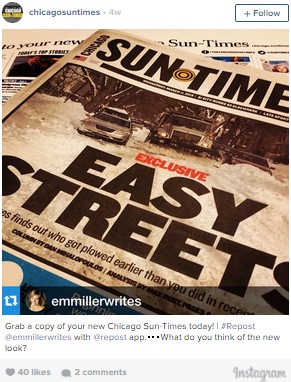This page will address things like common style errors, new social media networks, new policies, new tools for writers, changes to the site, and anything else those involved with The Speaker would benefit from.
If you have been directed here because of a common error you make in your writing, use your browser’s “Find…” tool to locate the words related to your problem.
Note that you will see a variety of styles of news writing on the internet and in print. Various papers use various styles. Not only that, errors are sometimes made at every publication, or they may syndicate articles from various sources. What is important is that everyone does their best to publish the clearest, truest news writing.
The Speaker uses AP Style — strictly. This is for the sake of consistency and because it makes editing more manageable.
president Lowercase when talking about a president or the president. Capitalize only as a formal title before a/several names, as in President Barack Obama, President John Smith of Acme Corp., Presidents Jacob Zuma of South Africa and Francois Hollande of France. Other uses: former-President Jimmy Carter, President-elect Maithripala Sirisena of Sri Lanka. Subsequent use: refer to the president by last name only:
President Barack Obama is planning to travel next week to the University of Kansas to make remarks only two days after he gives the annual State of the Union address.
The White House and the university confirmed that Obama has scheduled a visit Thursday to the university’s campus in Lawrence. Both said more details would be released later.
government Always lowercase: a government, the government, the Canadian government, the government of Argentina.
Parliament,
Congress,
the National Assembly, the Diet, the Knesset Capitalize when they are the proper name of a specific legislative body: the English Parliament. Lowercase when when the word is generically describing a formal name also given, or in plural constructions: the Diet, Japan’s parliament; the parliaments of England and France, the English and French parliaments.
Note: when referring to a national assembly using the word “assembly,” assembly is lowercase.
Senate, House, (other individual houses of a nation’s legislature, such as the Chamber of Deputies in Italy)
Parliament is capitalized, but parliamentary is lowercase.
embassy Capitalize with the name of a nation: the American Embassy, the US Embassy, the Moroccan Embassy, the Embassy of South Korea. Otherwise lowercase: the pair attempted to reach their country’s embassy.
Instagram link
Not a traffic driver. Brand awareness. Present news in a visually appealing way, reach people in a new and different way, show readers something new from Cairo to Beijing, engage them with the stories and locations, get at a type of audience that wouldn’t otherwise be looking at TheSpeaker, expose them to photographers and reporters they can follow and can take them to stories, get them to know the staff, get more personal with readers. Can host competitions, events, collaboratives.
Instagram: readers can immerse themselves in the SM platform, serenely, intimately viewing one image at a time on their phone. Readers can find TheSpeaker and get to know us. Instagram can also be used to gather news, following people to find things happening, breaking news, special events, festivals.
5-8 photos per day, sometimes more. Photo criteria: Is [the photo] something that belongs on Instagram? Is it going to do well there? Is it evocative? Does it read easily in a thumbnail? Does it tell a story?
Several sections can have accounts, such as opinion, sports, college, travel and readers’ letters/comments. Social team can run an account while photo department can run another.
User submitted photos with a theme each week, and the community can submit photos using a hashtag. Super social SM account. Professional photos can be less likely to draw engagement.






